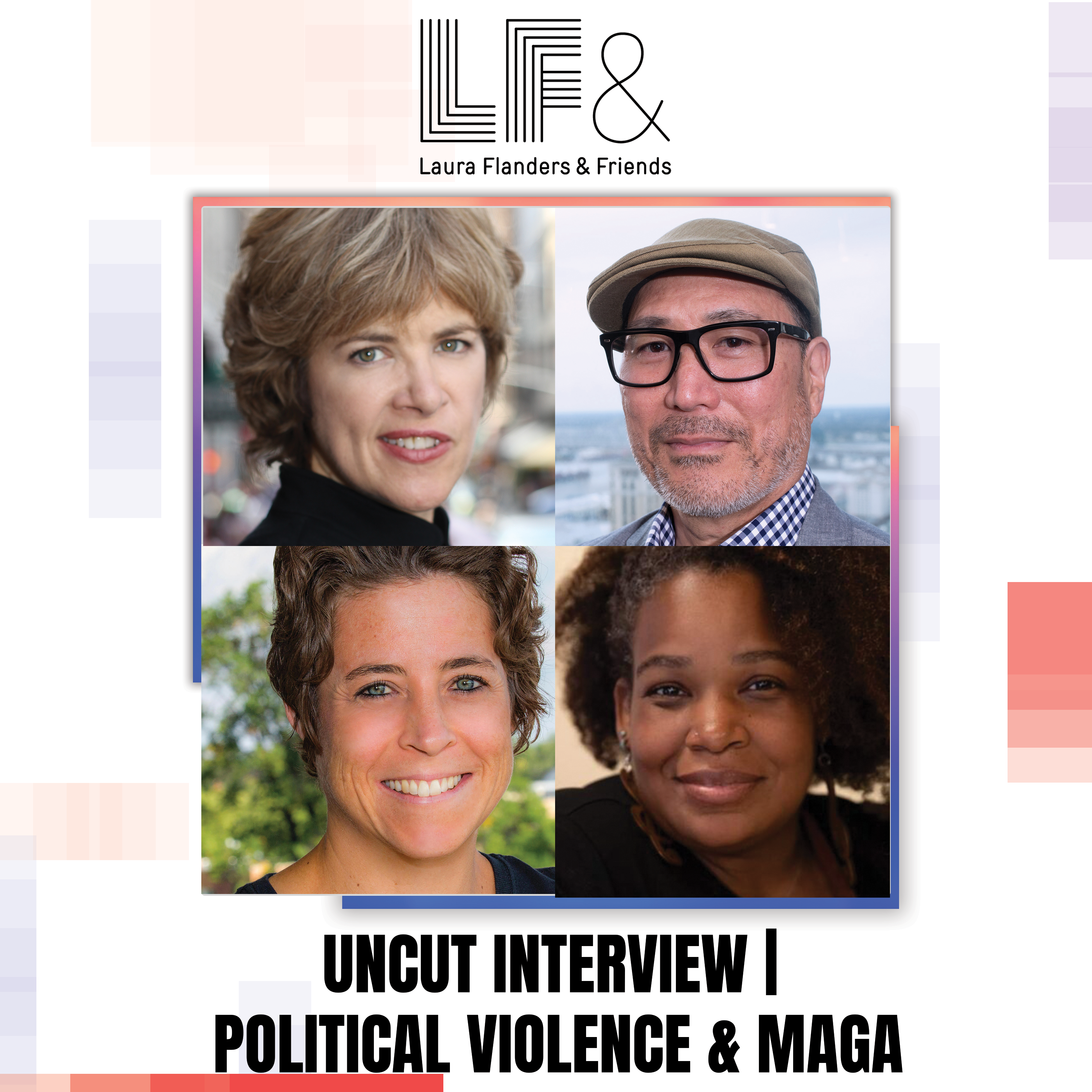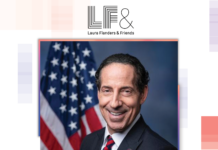For more audio extras, subscribe to Laura Flanders & Friends on your favorite podcast platform.
Political violence is on the rise and has reached just about every corner of the country, whether it’s confrontations on social media, at school board meetings or the chambers of Congress. Reuters reports that we’ve seen some 213 cases and 39 fatalities in the U.S. since January 6, 2021 — more than we’ve seen in decades. Women, people of color, Muslims, Jews, and LGBTQ people are among those most vulnerable, but the group seeing the fastest increase in reported incidents are conservatives who are perceived to be out of sync with the pro-Trump, MAGA line. While most Americans oppose political violence, it remains a growing threat to our democracy. What can be done? In this episode, co-hosts Laura Flanders and 22nd Century Initiative Director Scot Nakagawa convene an expert panel to define political violence and discuss how to protect one another and democracy itself. All that, plus Laura’s commentary on “Reveal, Reframe, Resist” and reporters’ roles.
“As a child of a Panther, I saw inspiration in every action. Even when I saw my mother’s friends being jailed for long periods of time or even killed by police terror . . . A lot of those folks went on to continue fighting against terror of the state and building community. I wanted to be a part of that . . .” – Sala Cyril
“I undertook the study because political violence is a persistent problem in the United States that I think is a fundamental threat to our democracy. My view is that one of the greatest sources of power countering that threat is actually people in communities around the country.” – Hardy Merriman
“Violence has greatly limited our ability to function as an inclusive, robust, multiracial democracy that in fact, we must deal with it . . . We need to believe we can win, and we need to think about who it is that we need on our side . . .” – Scot Nakagawa
“I can report anecdotally through different interactions with conservatives that they are experiencing political violence. I’ve been in attendance with secretaries of state, former Lieutenant governors. They all have stories of themselves or their families being on the receiving end of political violence . . .” – Maria J. Stephan
Guests
- Sala Cyril: Interim Executive Director, Vision Change Win; Organizer, Malcolm X Grassroots Movement, NYC
- Hardy Merriman: Author, Harnessing Our Power to End (HOPE) Political Violence; Expert, Democracy Movements
- Scot Nakagawa (Co-host): Executive Director, 22nd Century Initiative & 22nd Century Conference
- Maria J. Stephan: Co-Lead & Chief Organizer, The Horizons Project; Co-author with Erica Chenoweth, Why Civil Resistance Works: The Strategic Logic of Nonviolent Conflict
Portions of this interview are featured in our episode, “Political Violence & MAGA Militancy: Strategies to Protect Democracy”.

















